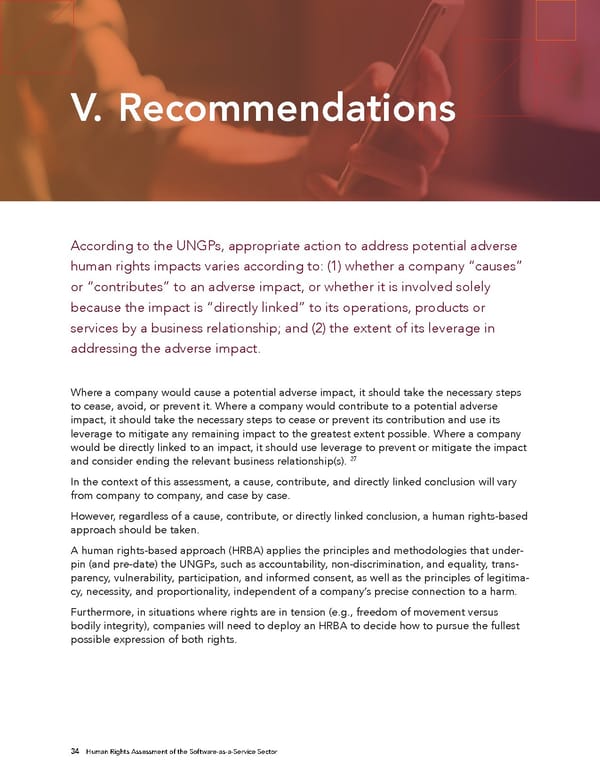V. Recommendations According to the UNGPs, appropriate action to address potential adverse human rights impacts varies according to: (1) whether a company “causes” or “contributes” to an adverse impact, or whether it is involved solely because the impact is “directly linked” to its operations, products or services by a business relationship; and (2) the extent of its leverage in addressing the adverse impact. Where a company would cause a potential adverse impact, it should take the necessary steps to cease, avoid, or prevent it. Where a company would contribute to a potential adverse impact, it should take the necessary steps to cease or prevent its contribution and use its leverage to mitigate any remaining impact to the greatest extent possible. Where a company would be directly linked to an impact, it should use leverage to prevent or mitigate the impact and consider ending the relevant business relationship(s). 27 In the context of this assessment, a cause, contribute, and directly linked conclusion will vary from company to company, and case by case. However, regardless of a cause, contribute, or directly linked conclusion, a human rights-based approach should be taken. A human rights-based approach (HRBA) applies the principles and methodologies that under- pin (and pre-date) the UNGPs, such as accountability, non-discrimination, and equality, trans- parency, vulnerability, participation, and informed consent, as well as the principles of legitima- cy, necessity, and proportionality, independent of a company’s precise connection to a harm. Furthermore, in situations where rights are in tension (e.g., freedom of movement versus bodily integrity), companies will need to deploy an HRBA to decide how to pursue the fullest possible expression of both rights. 34 Human Rights Assessment of the Software-as-a-Service Sector
 Human Rights Assessment of the Software-as-a-Service Sector Page 34 Page 36
Human Rights Assessment of the Software-as-a-Service Sector Page 34 Page 36